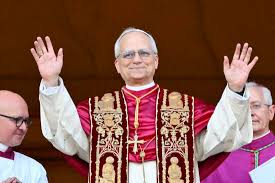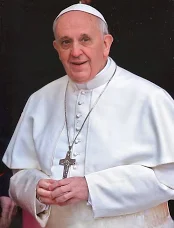Bishop Denis Nulty, chair of the Bishops’ Commission for Pastoral Care, has called on the Government to accelerate its implementation of the recent White Paper on the ending of Direct Provision, and for improvements in the processing of international protection, or asylum applications. Bishop Nulty’s comments were made to coincide with the 2021 World Day of Migrants and Refugees on Sunday 26 September.
Bishop Nulty said, “Sunday marks World Day of Migrants and Refugees throughout the universal Catholic Church. Here in Ireland this occasion offers us yet another opportunity to reflect on how we as a nation of the developed world, treat those who come to our shores seeking refuge and help – our fellow human beings, our brothers and sisters. This is all the more so as we emerge from the Covid-19 pandemic: to ensure that people who are vulnerable are not neglected or left behind. I strongly reiterate Pope Francis’s challenge in this year’s message for migrants and refugees, namely, that we no longer think in terms of them and those, rather only as ‘us’. So too during his visits abroad – and as recently as Budapest and Slovakia – Pope Francis challenges us to be bridge-builders. Let us welcome migrants and refugees across these bridges with our famous ‘Céad Míle Fáilte’.
“However, at a State level, there seems to be a hesitancy to progress to make the lives of refugees and migrants safer, and to accelerate their integration. Evidence given to the Oireachtas Committee on Public Petitions on 16 September showing delays in the processing of international protection, or asylum applications, are taking an unduly long time, with more than 5,000 people in the system and the median time to get a decision being over two years.
“In his World Day of Migrants and Refugees message Pope Francis draws on the theme of social responsibility, in other words that we take responsibility for each other. The Holy Father reminds us that ‘we are all in the same boat and called to work together so that there will be no more walls that separate us, no longer others, but only a single “we”, encompassing all of humanity.’
Pope Francis points to the need to be ever more faithful to our being ‘catholic’, to the universality of our calling as Christians ‘to embrace everyone, to build communion in diversity, to unify differences without imposing a depersonalized uniformity.’ He adds that ‘our societies will have a “colourful” future, enriched by diversity and by cultural exchanges. Consequently, we must even now learn to live together in harmony and peace.’
“We in Ireland have seen many examples of how refugees and migrants have been welcomed and cared for by our communities – most recently made visible by the arrival of refugees from Afghanistan, images which moved the world in recent months. A great many are being cared for and supported by Catholic agencies and organisations at a local and national level. This is what an Ireland of welcomes is meant to be.
“Crucially the State holds the central and lead role in this regard. It is therefore incumbent on those in authority to ensure that all is done to improve the lives of those coming to our shores for refuge or for work. Government must honour its commitment to take in refugees and to end the desperate system of Direct Provision Centres. Even the 2024 deadline for the ending of this cold and unacceptable system is too far away. Those who come to Ireland as refugees and migrants are people who can, and want to, contribute to our country. Society must honestly ask itself: ‘why are we preventing refugees and migrants from offering their gifts and talents to help build up the wider community?’ This preventative approach denies our society the benefit of diversity, cultural exchange and progress.”
ENDS

